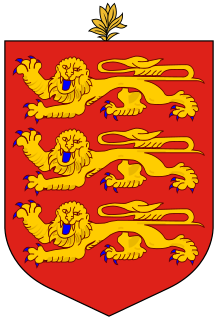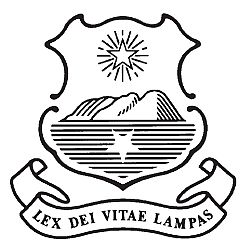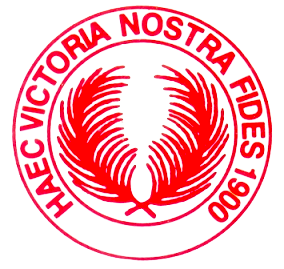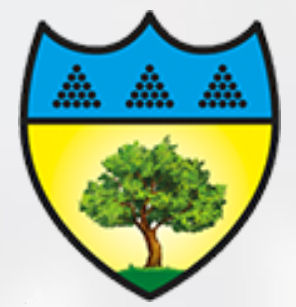This article relies too much on references to primary sources .(January 2012) (Learn how and when to remove this template message) |
| The Ladies' College | ||
|---|---|---|
 | ||
| Address | ||
GY1 1RW | ||
| Coordinates | 49°27′25″N2°32′56″W / 49.457°N 2.549°W Coordinates: 49°27′25″N2°32′56″W / 49.457°N 2.549°W | |
| Information | ||
| Type | Independent, day school | |
| Motto | French: Fais ce que dois advienne que pourra (Do your duty come what may) | |
| Established | 1872 | |
| Local authority | Guernsey Offshore Establishments | |
| Department for Education URN | 132526 Tables | |
| Headmistress | Ashley Clancy | |
| Gender | Girls | |
| Age range | 11–18 | |
| Houses |
| |
| Colour(s) | Green and navy blue | |
| Publication | Ilex | |
| School fees | £3,660 per term (2019/2020) [1] | |
| Website | www | |
| ||
The Ladies' College is an independent day school for girls in Saint Peter Port, Guernsey.

In the United Kingdom, independent schools are fee-levying private schools, governed by an elected board of governors and independent of many of the regulations and conditions that apply to state-funded schools. For example, pupils do not have to follow the National Curriculum. Many of the older, expensive and more exclusive schools catering for the 13–18 age-range in England and Wales are known as public schools as defined by the Public Schools Act 1868, the term "public" being derived from the fact that they were then open to pupils regardless of where they lived or their religion. Prep (preparatory) schools educate younger children up to the age of 13 to "prepare" them for entry to the public schools and other independent schools. Some former grammar schools converted to an independent fee-paying model following the 1965 Circular 10/65 which marked the end of their state funding; others converted into comprehensive schools.
A day school—as opposed to a boarding school—is an educational institution where children are given instruction during the day, after which the students return to their homes. A day school has full-day programs.

Single-sex education, also known as single-gender education and gender-isolated education, is the practice of conducting education with male and female students attending separate classes, perhaps in separate buildings or schools. The practice was common before the 20th century, particularly in secondary and higher education. Single-sex education in many cultures is advocated on the basis of tradition as well as religion, and is practiced in many parts of the world. Recently, there has been a surge of interest and establishment of single-sex schools due to educational research. Single-sex education is practiced in many Muslim majority countries; while in other parts of the world it is most popular in Chile, Israel, South Korea, and English-speaking countries such as Singapore, Ireland, the United Kingdom, Hong Kong, New Zealand, and Australia. In the Western world, single sex education is primarily associated with the private sector, with the public (state) sector being overwhelmingly mixed sex; while in the Muslim world the situation is the opposite: public schools are usually single sex, while many private schools are mixed sex. Motivations for single sex education range from religious ideas of sex segregation to beliefs that the sexes learn and behave differently, and, as such, they thrive in a single sex environment. In the 19th century, in Western countries, single sex girls' finishing schools, and women's colleges offered women a chance of education at a time when they were denied access to mainstream educational institutions. The former were especially common in Switzerland, the latter in the US and the UK, which were pioneers in women's education.
Contents
As an independent school, the majority of pupils are fee-paying; however the States of Guernsey awards scholarships annually on the basis of 11-plus results. Students of Melrose, the primary school section of The Ladies' College, are not permitted to take the eleven plus, and therefore must be fee-paying students if they are to attend the school.

The States of Guernsey is the parliament of the British Crown dependency of Guernsey. Some laws and ordinances approved by the States of Guernsey also apply to Alderney and Sark as "Bailiwick-wide legislation" with the consent of the governments of those islands. All enactments of the States of Guernsey apply to Herm as well as Guernsey, since Herm is wholly owned by the States of Guernsey.
Originally catering solely for girls, since 1999 lessons in the sixth form have been shared with the school's boys' counterpart, Elizabeth College; the girls and boys are given a small window of time between lessons to walk to the respective school.
In the education systems of England, Northern Ireland, Wales, and some Commonwealth countries, sixth form represents the final 1-3 years of secondary education, where students prepare for their A-level examinations.

The Royal College of Elizabeth, formerly the Queen Elizabeth's Grammar School and better known as Elizabeth College, is an independent day school for boys in Saint Peter Port, Guernsey. One of the earliest members of the Headmasters' and Headmistresses' Conference (HMC), it is a public school in the British sense of the term. Founded on 25 May 1563 by royal charter from Queen Elizabeth I in order that students would go on to preach as clergymen in local churches according to the principles of the Protestant Reformation, the school is one of the oldest public schools in the British Isles, and the oldest in the Channel Islands. Upper Canada College, in Toronto, Ontario, was founded in 1829 by Sir John Colborne, based on the school.










